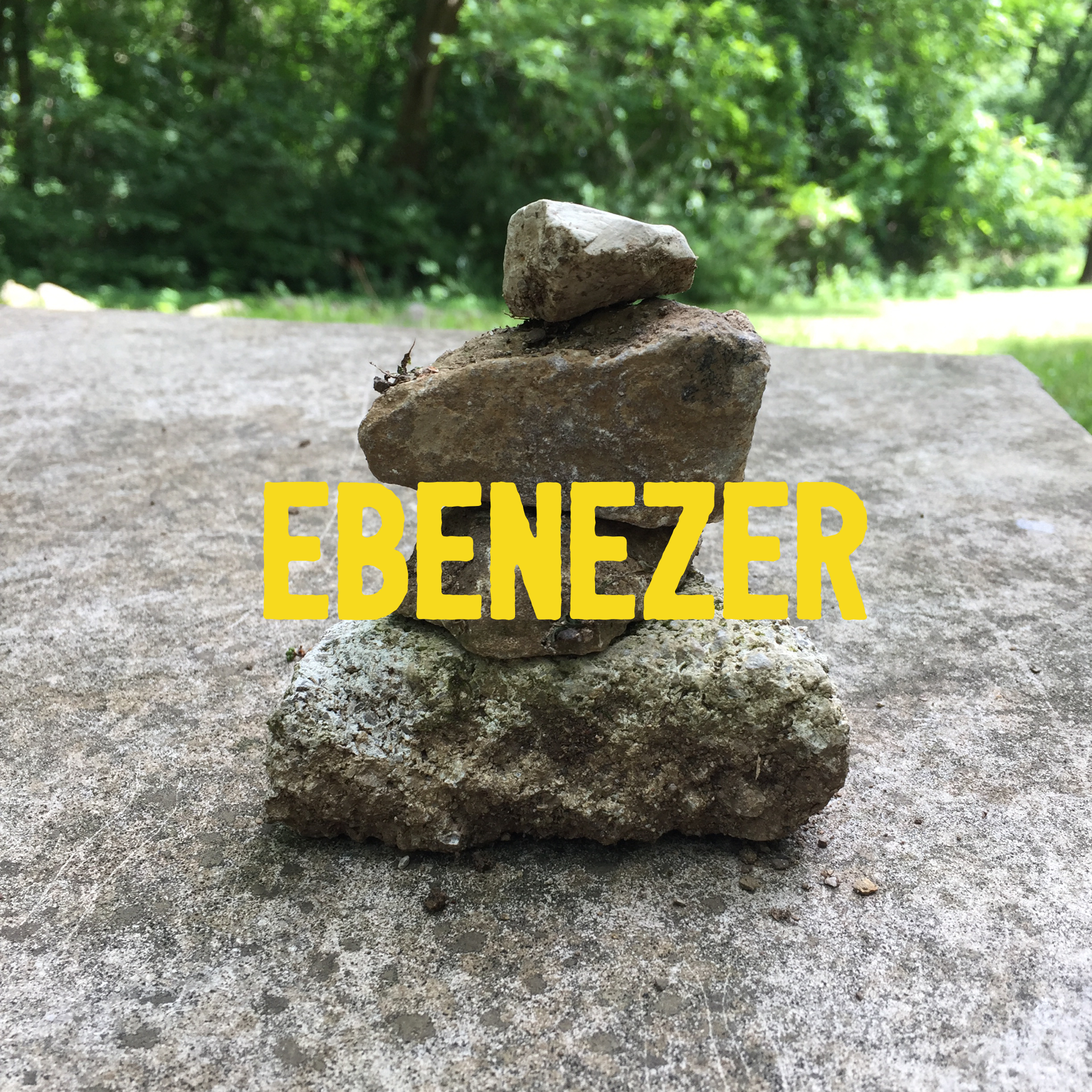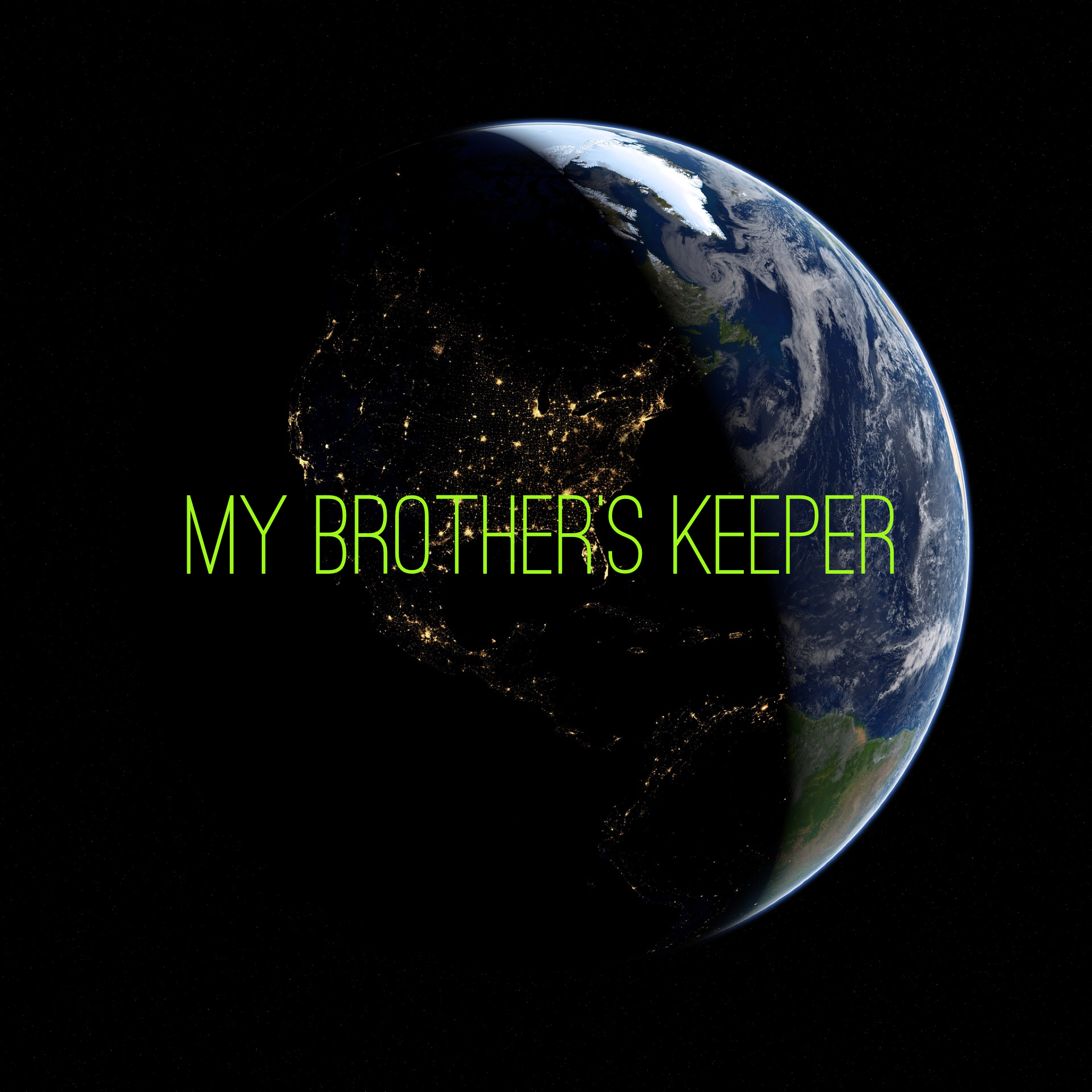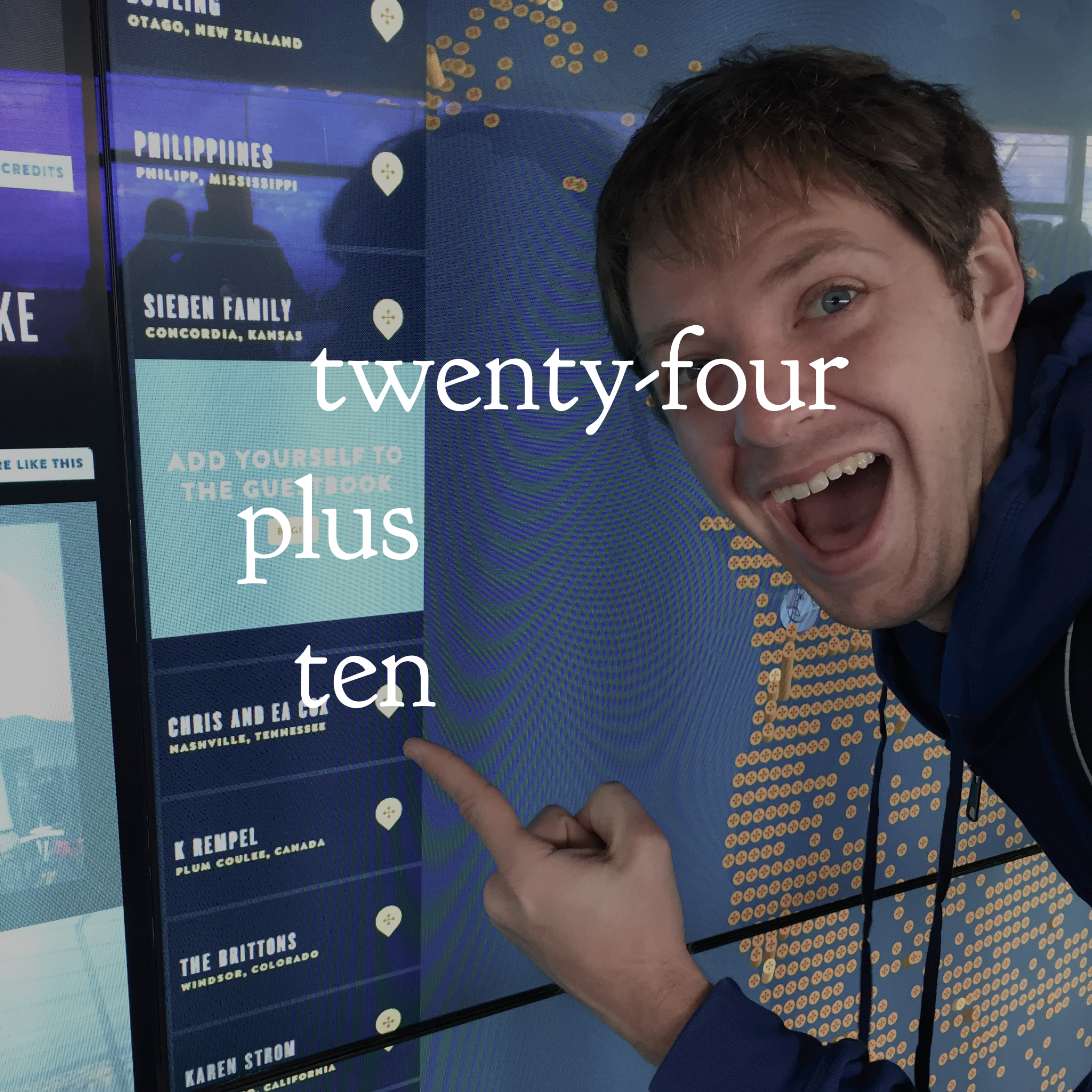Ebenezer (1 Samuel 7:3-12)
The following is my sermon manuscript from my message at The Bridge worship service at Woodmont Christian Church on May 28. This is what was in front of me. It's not necessarily what I said, but this is the gist.
I was running the 5.8 Trail at Percy Warner Park because I didn’t know what to do. Honestly, it had been a crappy few days. Sunday had been my birthday. Now birthdays for adults are not filled with the same amount of excitement as birthdays are for kids. Still you want to have a good day. Mine started with a two-week old hot water heater spraying water into our laundry room to the tune of 3 inches of flooding. On top of that, our children—probably because of some combination of the flooding, being displaced for a night, and the end of the school year—had gone full Lord of the Flies on us.
This one-two punch combined with a few other things to send me into an existential tailspin. None of it was big, but it was enough to snowball into this response of “Oh no, I’m horrible at life! I’m not a good parent. Am I good at my job? Am I even passable for an adult?” None of which is a a good headspace to be in when you’re supposed to be coming up with a sermon for the next Sunday.
So that’s why I was running the rolling, branch-shaded hills at Percy Warner when I should have been researching the scripture passage that I had chosen. I didn’t know what else to do. I was running and praying. For some reason, the combination of those two things have always had a knack for cutting through whatever spiritual fog that I am experiencing. I pray best with my feet. I pray best when I put myself in the relative wilderness with little to no distraction. There is something about praying when running that enhances vulnerability. There is no place for confident pretense when you’re sweaty and huffing and puffing.
So God and I had it out. I talked about my fears and self-doubt. I confessed the ways that I had not loved God with my entire heart and failed to love my neighbor as myself. I prayed for my loved ones and even those that were getting on my nerves. I prayed that God would help me to re-focus on following Jesus.
And something happened: I began to feel better. I’m sure a neuroscientist could tell us what happened from a practical standpoint: that getting outside and taking my mind off the stresses in my life was healthy. That’s probably true. All I know is that I started that run feeling desperately alone and yet I finished feeling like God was right there with me.
I remembered other times when I had felt alone and out of sorts and I was reminded that God had brought me safe thus far. And I felt peace when earlier I had previously felt panic. In all of this running and praying, I realized what scripture passage I wanted to talk about this Sunday. Amidst the mild desperation, the pleading prayer, the wilderness setting, and the reminder of God’s presence, the word Ebenezer came to mind.
Ebenezer is found in 1 Samuel 7:3-12. For a little bit of context, the people of Israel had found themselves in the midst of a long and often bloody conflict at the time of this story. The neighboring Philistines were making their lives miserable. Not helping matters was the fact that Israel’s leadership were not really being faithful to God. They were chasing after idols and participating in much of the general shenanigans that brought doom upon people in the Hebrew Bible. The entire people were hurt by this foolishness.
The low point of this conflict with the Philistines came when Israel’s enemy captured the Ark of the Covenant. The Ark was believed to embody the presence of God and for this vitally important symbol to be taken from God’s people was devastating. It was so bad that upon hearing of the Ark’s capture, the priest Eli immediately fell dead.
Eventually the Ark was returned. Terrible things kept happening wherever the relic was being held hostage. Not necessarily Raiders of the Lost Ark face-melting, but terrible enough that the Philistines gave it back. Things also began to look up as Samuel began to lead Israel as a judge. The prophet Samuel understood that their problems with the Philistines would continue to be ever present if they ignored the problems within their own hearts.
Samuel instructs Israel to throw out all the foreign idols and return to Yahweh with the all of their hearts and they do. The people gather as a community at Mizpah for a time of prayer and repentance. This pouring out of water before God ritual that we see in this passage is unusual in the Bible. We don't see groups participating in this act anywhere else. However since the passage also mentions fasting and confession, we can gather that it was supposed to represent some sort of community purification. They wanted God to wash away the ways in which they had messed up.
The Philistines hear that all of the people are gathered at Mizpah and hatch a dastardly scheme to attack. Israel hears of these plans. I don’t really know how. I’m guessing spies? The text doesn’t really dwell on that, but it’s those kind of plot holes that always bother me. Regardless, Israel hears that a Philistine attack is imminent and there’s no way they are going to be able to fight back. So they come to Samuel and they beg him, “Do not cease to cry out to the Lord our God for us and pray that He may save us from the hand of the Philistines!” They are desperate and out of sorts. They are trying their best to follow God and suddenly their enemy is ready to annihilate them.
So Samuel makes a sacrifice to God and he cries out to God for help. God hears Samuel and thunders against the Philistines. The enemies of Israel are thrown into confusion. These fierce warriors suddenly do not know what is going on and Israel comes out and routs the Philistine army. They are victorious. The story with the Philistines is not over. We know there are more battles coming, but it’s a big deal. My sons watched Star Wars for the first time last night (parenthetically, they loved it) and it’s like the Rebel Alliance’s celebration after the first Death Star is destroyed. The Empire is still around, but the victory is enormous.
After this incredible victory, Samuel erects a stone of memorial between Mizpah and Jeshanah. He names the stone Ebenezer, which means “Stone of Help.” Samuel names the stone Ebenezer and declares, “Thus far the Lord has helped us.” It’s a reminder that the victory was not because of Israel, but because of God. Walter Brueggemann writes, “Samuel and Israel are clear that the transformation was wrought by Yahweh and by none other. Israel must always remember that the victory is a victory given by Yahweh. It is not Israel’s victory, or even the victory of Samuel.”
It is not unusual for people to put up monuments and memorials to signify important events. You can find historical markers all over this city designating different aspects of the Battle of Nashville. You can go to our nation’s capital and find great structures dedicated to past presidents, fallen soldiers, and civic leaders. We often memorialize those moments that matter to us. In the Hebrew Bible, many of those monumental moments were encounters with God.
In Genesis 28:10-22, Jacob is on the run from his brother Esau. One night he lays down and has this incredible dream in which he sees angels ascending to and descending from heaven. At the top, Jacob sees God and this frightened man on the run hears from God, “I am with you and will watch over you wherever you go, and I will bring you back to this land. I will not leave you until I have done what I have promised you.” Jacob wakes up and sets up the stone he was sleeping on as a monument. He calls the place Bethel which means “House of God.”
In Joshua 4, the people of Israel finally cross over into the Promised Land. Forty years of wandering through the desert and an entire generation dying off have led them to this place. After they cross the Jordan River, Joshua orders the people to set up twelve stones, one for each of Israel’s tribes. He tells them that the purpose of this monument is for future generations. When children ask what the stones mean, parents are to tell them about God helping this people cross the Jordan and crossing the sea out of Egypt. They are to remember what God has done for them. This theme of remembrance is found throughout the Hebrew Bible. It is important for our journey of faith to remember what God has done, so we can return to those memories in times of trouble. It is important for the faith journeys of others in case the ways that God has been present can be an encouragement to others.
Thus Samuel carries on this tradition of remembrance by naming the stone Ebenezer: Stone of Help. Interestingly, this is not the first time that the name Ebenezer pops up in this narrative. A few chapters earlier, Ebenezer is named as the site of a completely different battle in which the Philistines crushed the people of Israel. All of which makes that name sing all the more. God took a place that was filled with memories of heartbreak and transformed it into a monument of God’s faithfulness. From Jacob to Joshua to Samuel, Ebenezers seem to spring forth from ground that seems barren.
This Ebenezer reminder of God’s help has even persevered into our present day. In churches today, we sing of Samuel’s stone memorial in the hymn “Come Thou Fount of Every Blessing”:
Here I raise mine Ebenezer / Hither by Thy help I’ve come / And I hope by Thy good pleasure / Safely to arrive at home / Jesus sought me when a stranger / Wandering from the fold of God / He to rescue me from danger interposed his precious blood.
It’s funny how this one mention of a rock in 1 Samuel has had a life that continues to echo through today. It has traversed the borders of nations and oceans and religions and thousands of years. That message—thus far God has helped us—is potent. It is powerful.
I want to carry that message with me, but I have to overcome a few hurdles first. The Hebrew Bible, or the Old Testament as we often call it, contains elements with which are tough to deal at times. We have been talking about God’s help, but the underlying help that God provides in this passage is putting a whole lot of people to the sword. Granted, it’s easier here because the Philistines were planning on savagely attacking Israel while they were in the middle of a worship service. But it doesn’t change the fact that the scene is hard to harmonize with Jesus preaching “Blessed are the peacemakers” on the Sermon on the Mount. There are some ways that I cope with that and I would love to talk with anyone about afterwards. We don't have time for it right now, but I wanted to acknowledge that particular elephant in case it gives you pause like it does me.
I was sitting in my office earlier this week trying to reconcile how this passage resonated with me so much even though the context was foreign. I realized that even though you and I typically aren’t being physically attacked by marauding neighbors next door, we know what it feels like to be under siege. Our Philistines tend to be the things within us or outside of us that threaten the life of loving God and neighbor that is laid out for us. Our present-day Philistines may be a messed up relationship, a life-threatening illness, or financial struggles.
Probably more frequently, we find that—like Samuel pointed out to Israel—the enemy exists within us. We grapple with selfishness, greed, self-doubt, fear, or whatever else. Often we ignore the problems of our own hearts, not realizing that sweeping those issues under the rug only heightens the conflict that exists outside of us.
We could do a lot worse than follow Samuel’s example in this passage. We need to cry out to God. Maybe not literally, but maybe so. The people of Israel realized that they needed to refocus their hearts on God. So they prayed, they fasted, and they repented.
The fasting part I think is especially important today. In the context of the time, the people likely fasted from eating food and that is certainly a spiritual discipline that people still follow today. But the fasting that I think we need sometimes when we feel besieged is to simply fast from the distractions that come at us. Get away from work, step away from the things that stretch us, put down our phones, and try to find some quiet. Fast from noise.
Looking back on my run at Percy Warner earlier this week, I think the best decision I made was not to listen to music as I normally do when I run. I love music and many times it connects me to God more deeply, but at this moment I needed to be locked in to prayer. I think that baby step of fasting can be a great benefit especially in a world where everything comes at us so rapidly.
The people turned from the things that were dragging their gaze from their sacred calling to love God with their entire being and to love their neighbor as themselves. There are times that we have to do that as well. Sometimes we have to do that multiple times a day. We need to cry out and somehow, someway I think God listens. I don’t know how and I don’t know exactly what it looks like. I am not even saying that the result is going to be the same as that experienced by Samuel. But I believe that God listens and God cares and therefore that matters a great deal.
And then there are the Ebenezers. This is what I ask you. When have been the times that you felt like God was with you? When could you say, like Samuel, “God has helped me thus far”? It probably doesn’t look like any of the passages that we mentioned. God probably didn’t throw someone into confusion so that you could rout them or parted a river so that you could cross on dry land. The reality of God can sometimes be mystical and awe-inspiring or it can sometimes feel pedestrian. God speaks to us in a myriad of ways: through scripture, through life circumstances, through community, through song and art, through stillness, through creation. Think about your life. Where are the places that you can put up a marker for those moments when God was real to you? How can you remember those moments when you are in a spiritual fog?
At the end of my run on Tuesday, I knelt down and stacked a few rocks on top of each other. It’s silly I know. It was likely less than half a foot high and probably didn't last long. But I took a picture of those stones, made a note of the location, and labeled it Ebenezer. Because life can be difficult and trying sometimes and I want to remember those moments when I realize that I am not alone and that God is with me.
Like I mentioned earlier, I turned 34 last Sunday. In addition to that, EA had a birthday this week and our oldest son Jim had a birthday a few days before mine. Our seniors in the youth group are celebrating graduations. Summer is beginning. The end of May is a time of year in which I often find myself reflecting on the trail that I have walked so far. And I see Ebenezers scattered all over the place. When I remember those places, it better helps me follow God in the way of Jesus. May you remember your Ebenezers and may God give you many more. Amen.






